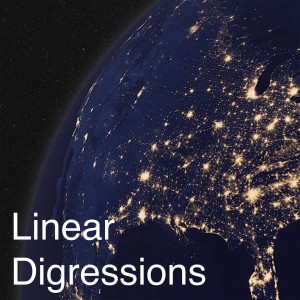Protecting Individual-Level Census Data with Differential Privacy
 2020-05-18
2020-05-18
Download
Right click and do "save link as"
The power of finely-grained, individual-level data comes with a drawback: it compromises the privacy of potentially anyone and everyone in the dataset. Even for de-identified datasets, there can be ways to re-identify the records or otherwise figure out sensitive personal information. That problem has motivated the study of differential privacy, a set of techniques and definitions for keeping personal information private when datasets are released or used for study. Differential privacy is getting a big boost this year, as it’s being implemented across the 2020 US Census as a way of protecting the privacy of census respondents while still opening up the dataset for research and policy use. When two important topics come together like this, we can’t help but sit up and pay attention.
view more
More Episodes
Interview with Joel Grus
 2019-06-10
2019-06-10
 2019-06-10
2019-06-10
Re - Release: Factorization Machines
 2019-06-03
2019-06-03
 2019-06-03
2019-06-03
The Black Hole Algorithm
 2019-04-29
2019-04-29
 2019-04-29
2019-04-29
Structure in AI
 2019-04-21
2019-04-21
 2019-04-21
2019-04-21
Google X, and Taking Risks the Smart Way
 2019-04-08
2019-04-08
 2019-04-08
2019-04-08
The Language Model Too Dangerous to Release
 2019-03-25
2019-03-25
 2019-03-25
2019-03-25
The cathedral and the bazaar
 2019-03-17
2019-03-17
 2019-03-17
2019-03-17
AlphaStar
 2019-03-11
2019-03-11
 2019-03-11
2019-03-11
K Nearest Neighbors
 2019-02-17
2019-02-17
 2019-02-17
2019-02-17
The Assumptions of Ordinary Least Squares
 2019-02-03
2019-02-03
 2019-02-03
2019-02-03
Quantile Regression
 2019-01-28
2019-01-28
 2019-01-28
2019-01-28
012345678910111213141516171819
Create your
podcast in
minutes
- Full-featured podcast site
- Unlimited storage and bandwidth
- Comprehensive podcast stats
- Distribute to Apple Podcasts, Spotify, and more
- Make money with your podcast
It is Free
- Privacy Policy
- Cookie Policy
- Terms of Use
- Consent Preferences
- Copyright © 2015-2024 Podbean.com



